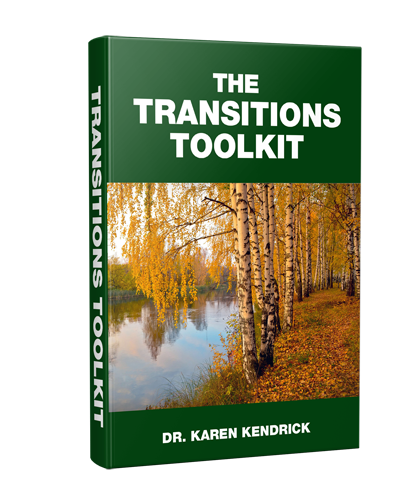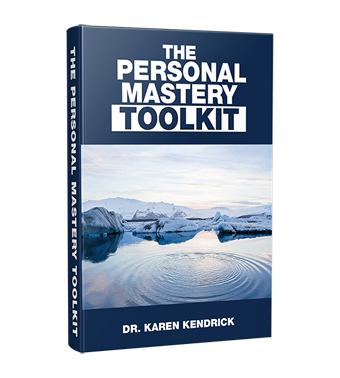HOW TO DEAL WITH LOSS
If you are dealing with a loss and struggling to make sense of it all, you are not alone.
Even though we know loss is a part of life, the impact on us mentally, physically, and emotionally can take its toll.
But no matter what type of loss you are experiencing or how deep your feelings of sadness, disappointment, shock, or fear is, there are things you can do to help.
Here are 7 keys to dealing with loss:
1) Acknowledge that the loss is real
While it may be tempting to discount your feelings as not being warranted for the situation, it’s more helpful to embrace the sense of loss as genuine and valid. Being in denial about these feelings will prevent or postpone your ability to move through these emotions. This is not the time to judge yourself for feeling bad. Allow yourself to express whatever you feel rather than keeping your emotions bottled up.

Get a FREE copy of The Transitions Toolkit.
Navigate your work or life transition with confidence.
2) Use a variety of methods to express and address what you are feeling
Loss affects us emotionally, mentally, and physically. Our mind, heart, and body are an integrated unit. When you feel loss, you may experience a variety of symptoms such as body fatigue, mental fog, restlessness, sleep disturbances, or bursts of anger. So consider using multiple methods to deal with the loss. This could include talking to a friend, doing some physical exercise to release tension, getting to bed earlier, writing down your emotions, or attending a support group. Don’t limit yourself to one approach to get relief.
3) Avoid staying stuck in blame and anger
If you feel someone else is responsible for your loss, it can be easy to feel anger and blame. But one of the healthiest things you can do is to get beyond these initial feelings and let go of them so you don’t stay stuck. If you continue to have these negative feelings, they tend to keep you in a less empowered state, making you feel like a victim.
The best approach is to admit that you feel these emotions, talk about them, and then allow them to start to dissolve by focusing your attention elsewhere.
You don’t have to forgive those who you see as causing your pain (although forgiveness is very powerful if you can do it), you just have to start to get your mind focused in a more productive direction.
4) Boost your self-care routines
Dealing with loss puts extra stress on the body and how it functions. This is the time to be good to yourself and do things to help your immune system. Focus on staying hydrated, eating healthy foods, avoiding too much alcohol or sugar, and getting good rest. Stick to your exercise routines as much as possible. If you don’t feel like doing a full workout, then try a simple walk or doing some stretching or yoga.
WANT TO JUMPSTART YOUR WORK OR LIFE TRANSITION?
Take the BRILLIANT TRANSITIONS™ digital course.
5) Avoid isolating yourself
While having some private time to grieve is useful and healthy, be careful about closing yourself off for too long to sources of support. It’s natural during a time of sadness to not want to show vulnerability and to not want to meet anyone else’s expectations or needs. But remember that most people in your life care about your wellbeing and want to help.
Balance your need for processing your loss on your own with accessing the abundance of resources out there to help you.
Push yourself if necessary to pick up the phone or get out in your community, even if it’s just for 10 minutes.
6) Manage the timing on other big decisions in your life
Sometimes the emotions of a loss can make it difficult to see things as clearly. It may also lengthen the time it takes to adapt to any new changes. So be careful about making quick decisions about things that might be hard to change your mind about later. This could include things like selling your house, buying a new car, quitting a job, or ending a friendship. Give yourself time to think things through and get advice from people you trust who can provide some perspective on your choices.
7) Be patient with yourself and trust that you’ll feel better over time
We all experience loss at different levels and process it at different speeds. Exercise compassion with yourself and don’t worry about how long your feelings of sadness are taking. Give yourself permission to feel what you feel at your own pace. Trust that time will help you heal and that the heaviness of your emotions will eventually lighten.
DIVE DEEPER: Gain more clarity and control during this time in your life here so you can feel better and move forward.

Get a FREE copy of The Transitions Toolkit!
Navigate your work or life transition with confidence.
IF YOU LIKED THIS CONTENT, CHECK OUT:
NEW TO KAREN?



